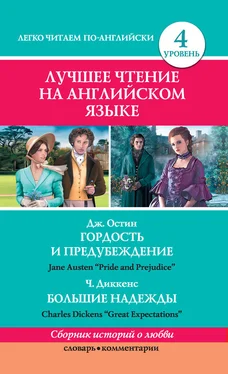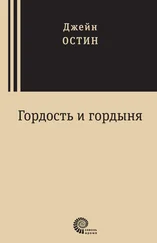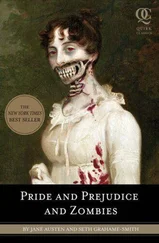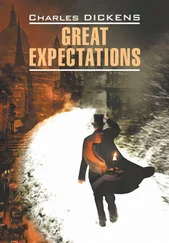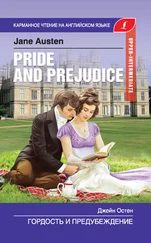We walked through Wemmick’s greenhouse, until he turned to me and said, “Notice the man I shall shake hands with.”
“Colonel, to you!” said Wemmick; “how are you, Colonel?”
“All right, Mr. Wemmick.”
“Everything was done that could be done, but the evidence was too strong for us, Colonel.”
“Yes, it was too strong, sir – but I don’t care.”
“No, no,” said Wemmick, coolly, “you don’t care.” Then, turning to me, “Served His Majesty this man. Was a soldier in the line and bought his discharge. [156]”
I said, “Indeed?” and the man’s eyes looked at me, and then looked over my head, and then looked all round me, and then he drew his hand across his lips and laughed.
“By the way,” said Wemmick. “You were quite a pigeon-fancier.” The man looked up at the sky. “Could you commission any friend of yours to bring me a pair, of you’ve no further use for them? [157]”
“It shall be done, sir.”
“All right,” said Wemmick, “they shall be taken care of. [158]Good afternoon, Colonel. Good bye!”
They shook hands again, and as we walked away Wemmick said to me, “A Coiner, [159]a very good workman. The Recorder’s report is made to-day, and he is sure to be executed on Monday. Still you see, a pair of pigeons are portable property all the same. [160]”
Mr. Wemmick and I parted at the office in Little Britain, and I returned to my watch in the street of the coach-office, with some three hours on hand. I thought of the beautiful young Estella, proud, coming towards me, and I thought with absolute abhorrence of the contrast between the jail and her. At last, I saw her face at the coach window and her hand waving to me.
In her travelling-dress, Estella seemed more delicately beautiful than she had ever seemed yet, even in my eyes. I thought I saw Miss Havisham’s influence in the change.
“I am going to Richmond, [161]” she told me. “There are two Richmonds, one in Surrey [162]and one in Yorkshire, [163]and mine is the Surrey Richmond. The distance is ten miles. I am to have a carriage. This is my purse, and you are to pay my charges out of it. O, you must take the purse! We have no choice, you and I, but to obey our instructions.”
As she looked at me in giving me the purse, I hoped there was an inner meaning in her words. She said them not with displeasure.
“A carriage will have to be sent for, [164]Estella. Will you rest here a little?”
“Yes, I am to rest here a little, and I am to drink some tea, and you are to take care of me the while.”
“Where are you going to, at Richmond?” I asked Estella.
“I am going to live,” said she, “at a great expense, with a lady there, who has the power – or says she has – of taking me about, and introducing me, and showing people to me and showing me to people.”
“I suppose you will be glad of variety and admiration?”
“Yes, I suppose so. How is your life at Mr. Pocket’s?”
“I live quite pleasantly there.”
“Your friend Mr. Matthew, I believe, is superior to the rest of his family?”
“Very superior indeed. He is nobody’s enemy – ”
“He really is disinterested,” interposed Estella, “and above small jealousy and spite, I have heard?”
“I am sure I have every reason to say so. [165]”
She gave me her hand. I held it and put it to my lips.
“You ridiculous boy,” said Estella, “will you never take warning? Or do you kiss my hand in the same spirit in which I once let you kiss my cheek?”
“What spirit was that?” said I.
“I must think a moment. A spirit of contempt.”
“If I say yes, may I kiss the cheek again?”
“You should have asked before you touched the hand. But, yes, if you like.”
I leaned down, and her calm face was like a statue’s. “Now,” said Estella, gliding away the instant I touched her cheek, “you are to take care that I have some tea, and you are to take me to Richmond.”
When we passed through Hammersmith, I showed her where Mr. Matthew Pocket lived, and said it was no great way from Richmond, and that I hoped I should see her sometimes.
“O yes, you are to see me; you are to come when you think proper; you are to be mentioned to the family; indeed you are already mentioned.”
I inquired was it a large household she was going to be a member of?
“No; there are only two; mother and daughter. The mother is a lady of some station. [166]”
“I wonder Miss Havisham could part with you again so soon.”
“It is a part of Miss Havisham’s plans for me, Pip,” said Estella, with a sigh, as if she were tired; “I am to write to her constantly and see her and report how I go on – I and the jewels – for they are nearly all mine now.”
It was the first time she had ever called me by my name. Of course she did so purposely, and knew that I should treasure it up.
As I had grown accustomed to my expectations, I had begun to notice their effect upon myself and those around me. I lived in a state of chronic uneasiness respecting my behaviour to Joe. My conscience was not by any means comfortable about Biddy. When I woke up in the night, I used to think, that I should have been happier and better if I had never seen Miss Havisham’s face, and had worked with Joe in the honest old forge. When I sat alone looking at the fire, I thought, there was no fire like the forge fire and the kitchen fire at home.
My lavish habits led Herbert’s easy nature into expenses that he could not afford, corrupted his life, and disturbed his peace with anxieties and regrets.
Moreover, I began to contract a quantity of debt. Herbert soon followed me. At Startop’s suggestion, we put ourselves down for election into a club called The Finches of the Grove. [167]The members were dining expensively once a fortnight, quarrelling among themselves as much as possible after dinner, and causing six waiters to get drunk on the stairs. That’s all.
The Finches spent their money foolishly (the Hotel we dined at was in Covent Garden), and the first Finch I saw when I had the honor of joining the Grove was Bentley Drummle.
I was usually at Hammersmith about half the week, and when I was at Hammersmith I haunted Richmond.
We spent as much money as we could. We were always more or less miserable, and most of our acquaintance were in the same condition. There was a gay fiction among us that we were constantly enjoying ourselves, and a skeleton truth that we never did.
At certain times – I would say to Herbert, as if it were a remarkable discovery —
“My dear Herbert, we are getting on badly. [168]”
“My dear Handel,” Herbert would say to me, in all sincerity, if you will believe me, those very words were on my lips, by a strange coincidence.”
“Then, Herbert,” I would respond, “let us look into out affairs.”
We ordered something rather special for dinner, with a bottle of something similarly out of the common way, in order that our minds might be fortified for the occasion.
I would then take a sheet of paper, and write across the top of it, in a neat hand, the heading, “Pip’s debts”; with Barnard’s Inn and the date very carefully added. Herbert would also take a sheet of paper, and write across it with similar formalities, “Herbert’s debts.”
Each of us would then refer to a confused heap of papers at his side, which had been thrown into drawers, worn into holes in pockets, half burnt in lighting candles, stuck for weeks into the looking-glass, and otherwise damaged. The sound of our pens going refreshed us exceedingly.
When we had written a little while, I would ask Herbert how he got on?
Читать дальше
Конец ознакомительного отрывка
Купить книгу
